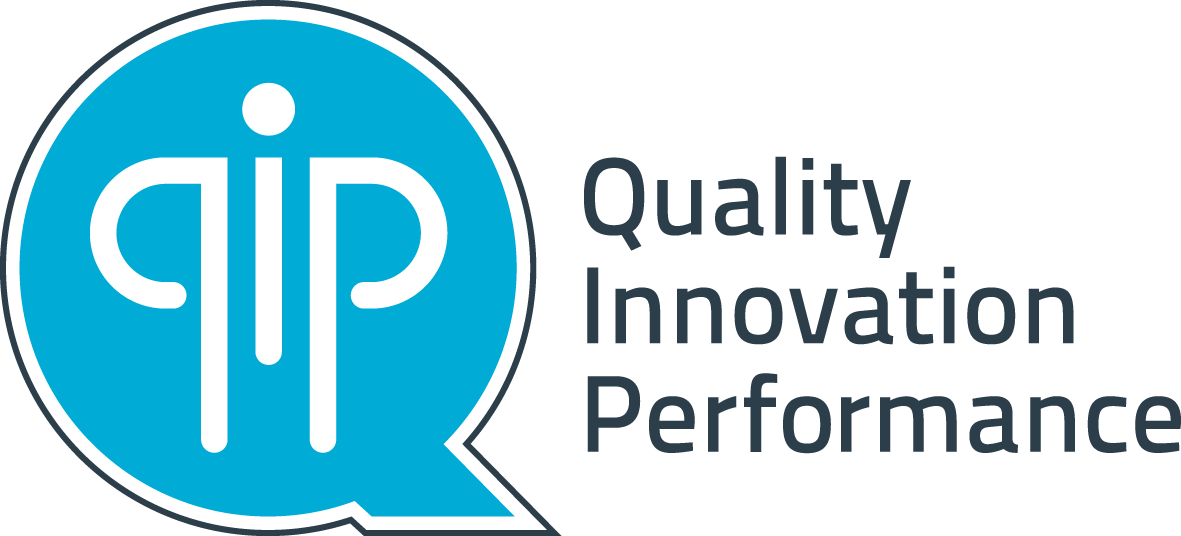QIP Safeguarding Standards for Children and Adults at Risk
The QIP Standards for Safeguarding Children and Adults at Risk, Edition 2 (the QIP Safeguarding Standards), provide a nationally consistent, evidence-based framework to strengthen safeguarding governance, leadership and everyday practice. Applicable across all sectors and industries, the QIP Safeguarding Standards offer organisations a practical and independent way to strengthen accountability, build trust and drive ongoing, systemic improvements in the protection, safety, and wellbeing of children and adults at risk – helping turn safeguarding commitment into meaningful, measurable action.
Internationally accredited by the International Society for Quality in Health Care External Evaluation Association (ISQua EEA), the QIP Safeguarding Standards set a world-first benchmark for protecting children and adults at risk through independent, peer-reviewed accreditation.
Through external assessment and personalised support as part of QIP’s service model, organisations benefit from the insight and guidance of qualified, independent reviewers – providing objective evaluation, shared learning and encouragement to continually grow and improve safeguarding practices.
Developed in consultation with sector experts and informed by practical feedback, these Standards provide a robust and adaptable framework for organisations to protect children, adults at risk and service users from abuse, neglect, exploitation and harm.
The QIP Safeguarding Standards underpin an accreditation program that enables organisations to demonstrate leadership, accountability and an ongoing commitment to safety, quality and continuous improvement in safeguarding.
The QIP Safeguarding Standards help organisations turn commitment into action and continually improve through an impartial, independent, and internationally recognised framework for safeguarding
The QIP Safeguarding Accreditation Program
The QIP Safeguarding Accreditation Program provides a clear, structured, and supportive pathway for organisations to build and sustain safer environments for children, adults at risk, and the wider community.
Developed in line with national and international best practice, the program brings the QIP Safeguarding Standards to life – combining independent evaluation with practical guidance to embed safeguarding within governance, leadership, and everyday culture.
The ten Safeguarding Standards encompass the 10 National Principles for Child Safe Organisations recommended by the Royal Commission into Institutional Responses to Child Sexual Abuse. They integrate state-based and international child-safe guidelines to reflect evolving expectations of government, communities, and service users.
Through the accreditation process, organisations can identify gaps in their systems, procedures and processes, while strengthening transparency and accountability at every level.
Supported by tailored guidance, tools, and QIP Client Liaison Team, each organisation is empowered to embed safeguarding principles in practice and demonstrate measurable progress over time.
More than a compliance exercise, the QIP Safeguarding Accreditation Program supports a cycle of continuous improvement – recognising organisations that show leadership, accountability, and an enduring commitment to protection, safety, and wellbeing.
Why did QIP develop a safeguarding accreditation program?
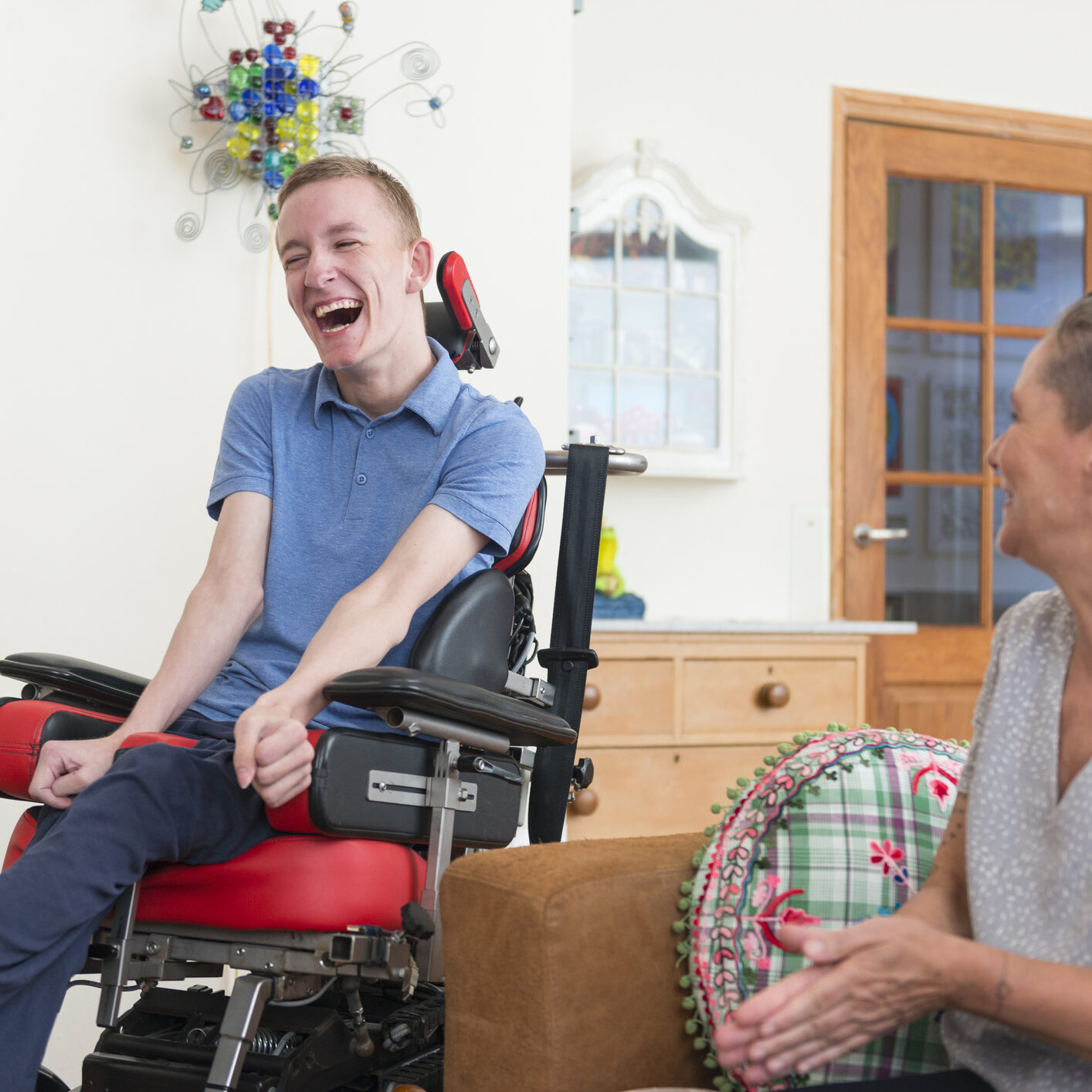
In recent years, in Australia and around the world, safeguarding has emerged as a critical governance issue for organisations, large and small, that provide services to children and adults at risk.
The work of Australia’s ground-breaking Royal Commission into Institutional Responses to Child Sexual Abuse revealed the devastating consequences of systemic failures that allowed child sexual abuse to be overlooked.
Subsequent inquiries – including the Royal Commission into Violence, Abuse, Neglect and Exploitation of People with Disability and the Royal Commission into Aged Care Quality and Safety confirmed that safeguarding efforts must also extend to protecting adults at risk.
Recognising a gap in both national consistency and formal, independent assessment of safeguarding practices, QIP took action to design a comprehensive, evidence-based accreditation program that supports organisations to strengthen governance, accountability, and culture – setting a new benchmark for safeguarding children and adults at risk.
How were the QIP Safeguarding Standards developed?
The QIP Safeguarding Standards were developed over more than five years of research, consultation and expert input by QIP’s Safeguarding Team, under the guidance of a multidisciplinary advisory panel. Drawing on QIP’s 25+ years of experience as a not-for-profit accreditation agency, the Standards reflect the organisation’s commitment to safety, quality and continuous improvement.
Their development was informed by key national and international frameworks, including the National Principles for Child Safe Organisations, and the findings of Australia’s major Royal Commissions into child sexual abuse, aged care and disability. These inquiries underscored the need for stronger governance, accountability and cultural change to protect vulnerable individuals.
The Standards embed principles of equity, inclusion, accountability and respect, aligning with international best practice and human rights frameworks, ensuring consistency across sectors and settings.
The QIP Safeguarding Standards
Standard 1 – Safeguarding governance and leadership
Standard 2 – Compliance and safeguarding accountability
Standard 3 – Organisational approach to safeguarding risk
Standard 4 – Quality and continuous improvement
Standard 5 – Workforce safeguarding
Standard 6 – Information management and security
Standard 7 – Safeguarding records
Standard 8 – Safe and inclusive environments
Standard 9 – Safeguarding in service provision
Standard 10 – Responding to safeguarding concerns
Turning safeguarding principles and expectations into a single, consistent, and independently measurable set of standards gives organisations a clear foundation for action.
Each QIP Safeguarding Standard has been purposefully developed to:
- Embed safeguarding within governance, leadership, and everyday culture.
- Identify and manage risks proactively across all areas of operation.
- Strengthen transparency, accountability, and trust at every level.
- Drive continuous improvement in the protection, safety, and wellbeing of children and adults at risk.
Together, these standards form a comprehensive framework that enables organisations of all sizes and sectors to translate safeguarding responsibilities into effective, lasting practice.
What organisations can be accredited against the QIP Safeguarding Standards?
The Safeguarding Standards have broad applicability. Any organisation or institution that provides services to children and/or adults at risk in any location across Australia can undertake the QIP Safeguarding Accreditation Program.
The QIP Safeguarding Standards allow for proportionality and diversity. They can be scaled for different sized and different types of organisations without diluting their intent, integrity or the accreditation outcome.
Examples of applicable organisation types include:
- Aboriginal health services
- Accommodation and support services
- Adult health services
- Care and protection services
- Child and family services
- Childcare and pre-school
- Child development services
- Community health services
- Community education centres
- Corrective services
- Counselling services
- Day care services
- Disability services
- Drug and alcohol services
- Early childhood services
- Educational tutoring
- Foster care
- Homelessness services
- Mental health services
- Migrant health services
- Multipurpose services
- Religious institutions
- Out of home care
- Sexual assault services
- Sexual health services
- Schools
- Sport and recreation
- Tertiary education institutions
- Women’s health services
- Youth health services
What does QIP Safeguarding Accreditation mean for organisations?
QIP Safeguarding Accreditation demonstrates to service users, families, carers, stakeholders, and the community that your organisation operates with transparency, accountability, and a strong culture of safety. It confirms that safeguarding is actively embedded across governance, leadership, and everyday practice – supported by evidence-based systems, policies, and continuous improvement processes.
Through independent third-party assessment, accreditation validates your organisation’s safeguarding approach – from leadership to risk management and service delivery. It provides assurance that your safeguarding commitments are measurable, externally verified, and aligned with national and international best practice.
Why work with QIP for your safeguarding accreditation?
QIP supports organisations to create safer environments for everyone, turning responsibility into action and action into a culture of trust, accountability, and continuous improvement.
As an ‘accredited’ accreditation agency, QIP upholds standards of quality and transparency by undergoing rigorous, independent evaluation every three years by the International Society for Quality in Healthcare (ISQua). This ensures our programs and systems reflect international best practice and the highest levels of integrity.
As a not-for-profit leader with more than 25 years of experience, QIP combines technical expertise with partnership.
We are proudly represented on ISQua’s Accreditation Federation Council, where we contribute to innovation in accreditation to help shape the future of safeguarding and quality improvement, both in Australia and internationally.
Working with QIP means joining a community of organisations committed to strengthening governance, culture, and accountability, and to building a safer future, together.
Contact us to find out more about the QIP Safeguarding Standards
The QIP Safeguarding Accreditation process
- Contact us through our online form or by phone 1300 888 329
- Self-assessment is completed internally, online via our digital platform to review the organisation against the Standards.
- Application for accreditation is completed by submitting the online self-assessment.
- Assessment is undertaken by an experienced QIP Assessor Team. This process includes reviewing relevant documents and records, interviewing staff and/or observing the service environment. This is followed by submission of an assessment report to QIP.
- Decision by an independent QIP Accreditation Decision Maker. For organisations that meet the Standards, accreditation will be awarded for a three-year period.
- Monitoring supports the maintenance of your organisation’s compliance with the Standards throughout the accreditation period. During this stage, a mid-cycle review is conducted.
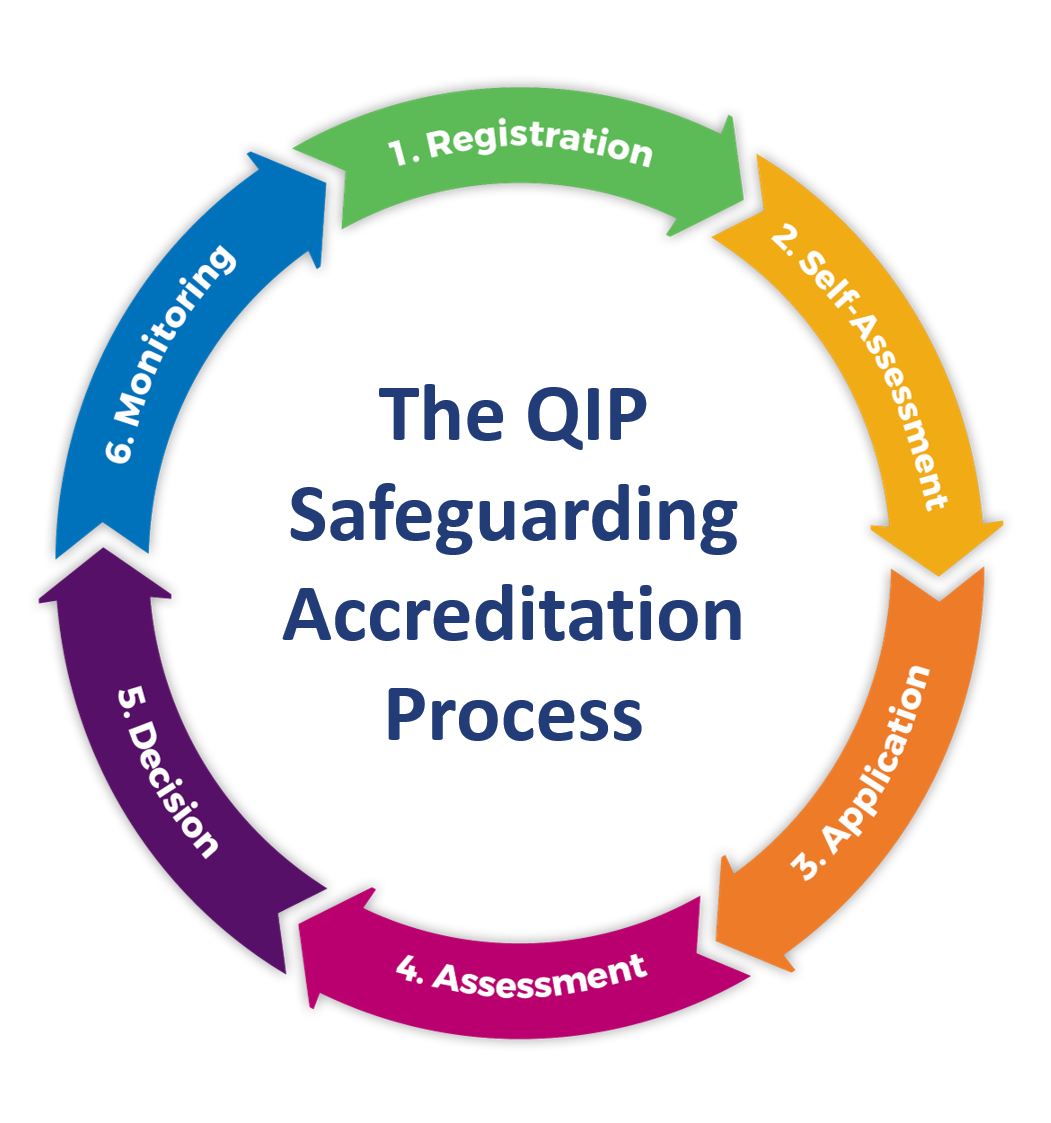
How QIP supports organisations
Tailored support
QIP has trained QIP Client Liaison Teams on hand to answer any questions clients may have about their accreditation, certification or verification. With expert knowledge of each of the standards or frameworks, evidence requirements and the self-assessment process, QIP’s Client Liaison Teams provide clients with on-going advice throughout their cycle.
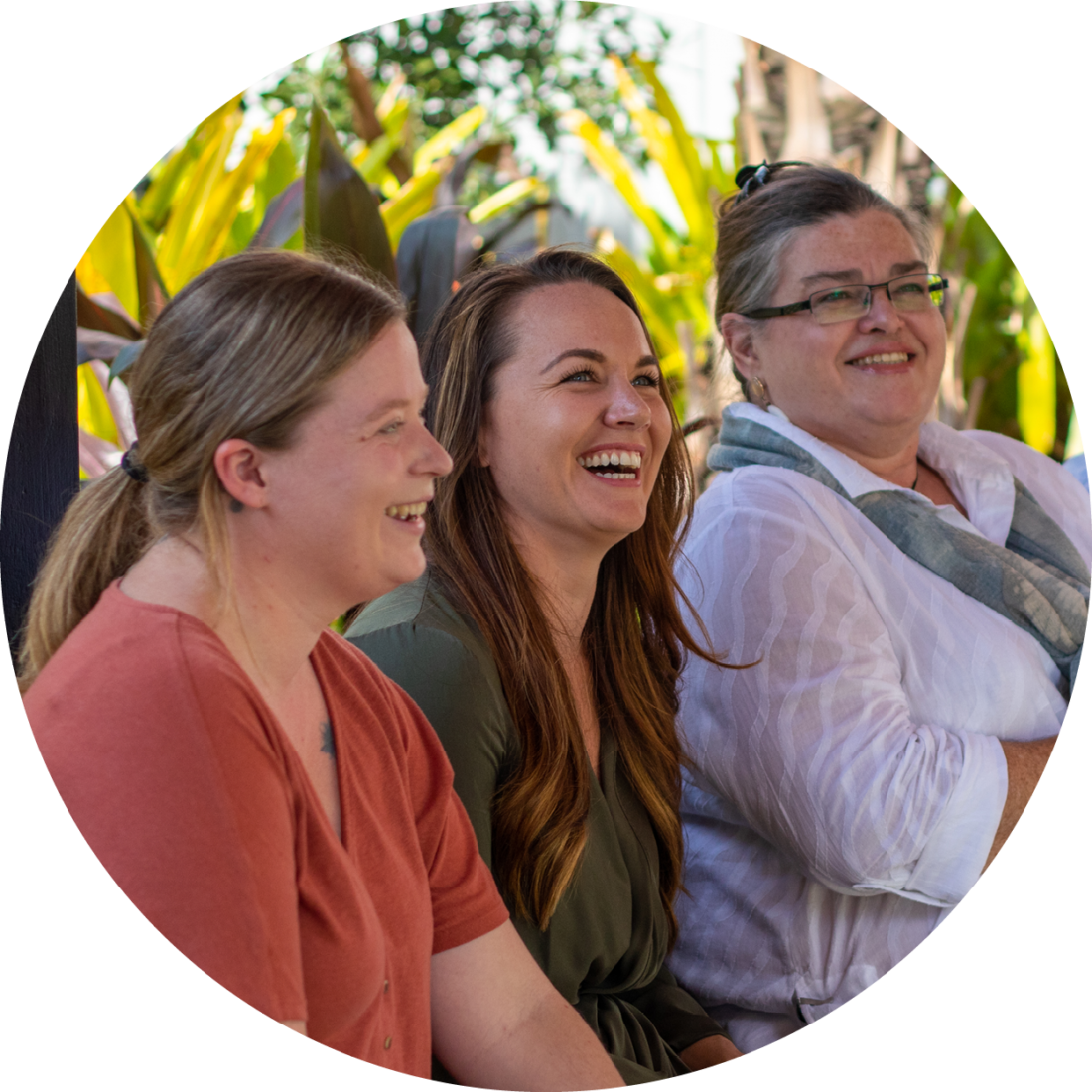
QIP’s accreditation hub
The QIP accreditation hub is an online platform tailored to each client’s individual accreditation timelines and framework requirements. It includes a personalised action plan, a resource library and a number of other features to support clients throughout their accreditation journey.
Access to AccreditationPro
QIP’s online self-assessment software, known as AccreditationPro, streamlines accreditation preparation by helping clients determine their organisation’s compliance with an applicable set of Standards.

Access to online resources and education
QIP’s online Education and Resource Library, provides clients with access to a range of practical, informative and customisable resources to support organisations in complying with the relevant industry Standards.
Regular news and e-newsletters
Stay up-to-date with industry and organisational news, helpful tips and your standards information with QIP communications including periodical e-newsletters advising of any changes to processes, systems, standards or evidence requirements are released.
Highly trained assessment teams
QIP’s Assessors are highly trained and qualified peer assessors who work across the Australian health, community and human services sectors. Our team will share their knowledge and support organisations through the accreditation assessment.
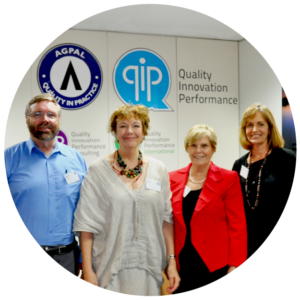
Celebrating the achievement of accreditation
Achieving QIP accreditation takes dedication, team work and a commitment to continuous quality improvement. When organisations achieve their accredited, certificated or verified status, they are provided with their own 'Promotional Toolkit' filled with a number of materials to celebrate and promote this achievement.
The QIP Accredited Symbol is one way consumers and local community can be reassured that an organisation has been recognised for their commitment to delivering a safe and quality-focused service.
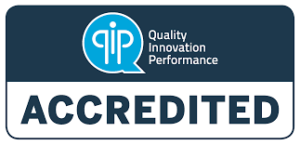
Through external assessment and personalised support as part of QIP’s service model, organisations benefit from the insight and guidance of qualified, independent reviewers – providing objective evaluation, shared learning and encouragement to continually grow and improve safeguarding practices.
Developed in consultation with sector experts and informed by practical feedback, these Standards provide a robust and adaptable framework for organisations to protect children, adults at risk and service users from abuse, neglect, exploitation and harm.
The QIP Safeguarding Standards underpin an accreditation program that enables organisations to demonstrate leadership, accountability and an ongoing commitment to safety, quality and continuous improvement in safeguarding.
